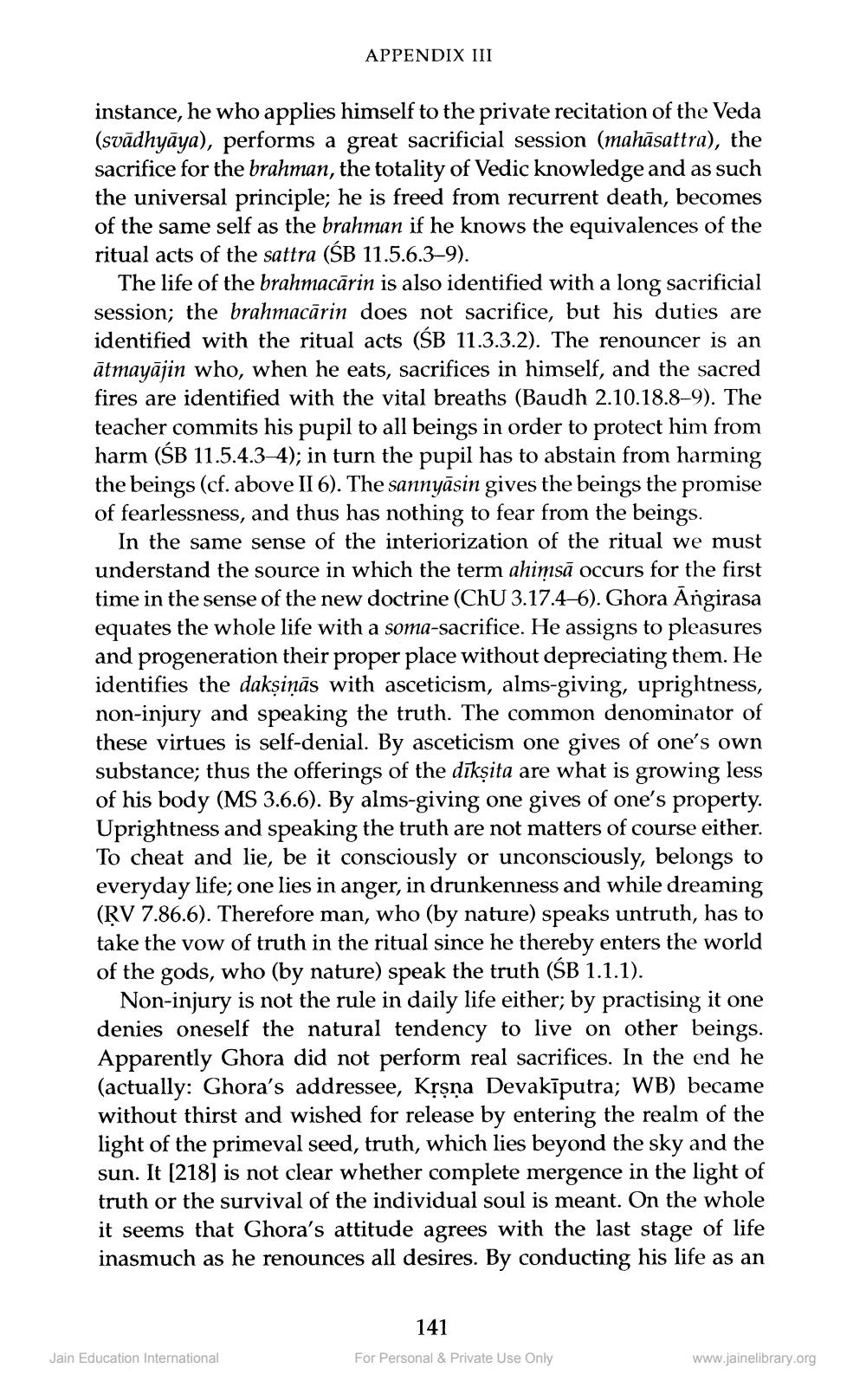________________
APPENDIX III
instance, he who applies himself to the private recitation of the Veda (svādhyāya), performs a great sacrificial session (mahāsattra), the sacrifice for the brahman, the totality of Vedic knowledge and as such the universal principle; he is freed from recurrent death, becomes of the same self as the brahman if he knows the equivalences of the ritual acts of the sattra (SB 11.5.6.3-9).
The life of the brahmacārin is also identified with a long sacrificial session; the brahmacārin does not sacrifice, but his duties are identified with the ritual acts (ŚB 11.3.3.2). The renouncer is an ātmayājin who, when he eats, sacrifices in himself, and the sacred fires are identified with the vital breaths (Baudh 2.10.18.8–9). The teacher commits his pupil to all beings in order to protect him from harm ($B 11.5.4.3-4); in turn the pupil has to abstain from harming the beings (cf. above II 6). The sannyāsin gives the beings the promise of fearlessness, and thus has nothing to fear from the beings.
In the same sense of the interiorization of the ritual we must understand the source in which the term ahimsā occurs for the first time in the sense of the new doctrine (ChU 3.17.4-6). Ghora Angirasa equates the whole life with a soma-sacrifice. He assigns to pleasures and progeneration their proper place without depreciating them. He identifies the dakşiņās with asceticism, alms-giving, uprightness, non-injury and speaking the truth. The common denominator of these virtues is self-denial. By asceticism one gives of one's own substance; thus the offerings of the dīksita are what is growing less of his body (MS 3.6.6). By alms-giving one gives of one's property. Uprightness and speaking the truth are not matters of course either. To cheat and lie, be it consciously or unconsciously, belongs to everyday life; one lies in anger, in drunkenness and while dreaming (RV 7.86.6). Therefore man, who (by nature) speaks untruth, has to take the vow of truth in the ritual since he thereby enters the world of the gods, who (by nature) speak the truth (ŚB 1.1.1).
Non-injury is not the rule in daily life either; by practising it one denies oneself the natural tendency to live on other beings. Apparently Ghora did not perform real sacrifices. In the end he (actually: Ghora's addressee, Krşņa Devakīputra; WB) became without thirst and wished for release by entering the realm of the light of the primeval seed, truth, which lies beyond the sky and the sun. It [218] is not clear whether complete mergence in the light of truth or the survival of the individual soul is meant. On the whole it seems that Ghora's attitude agrees with the last stage of life inasmuch as he renounces all desires. By conducting his life as an
141
Jain Education International
For Personal & Private Use Only
www.jainelibrary.org




